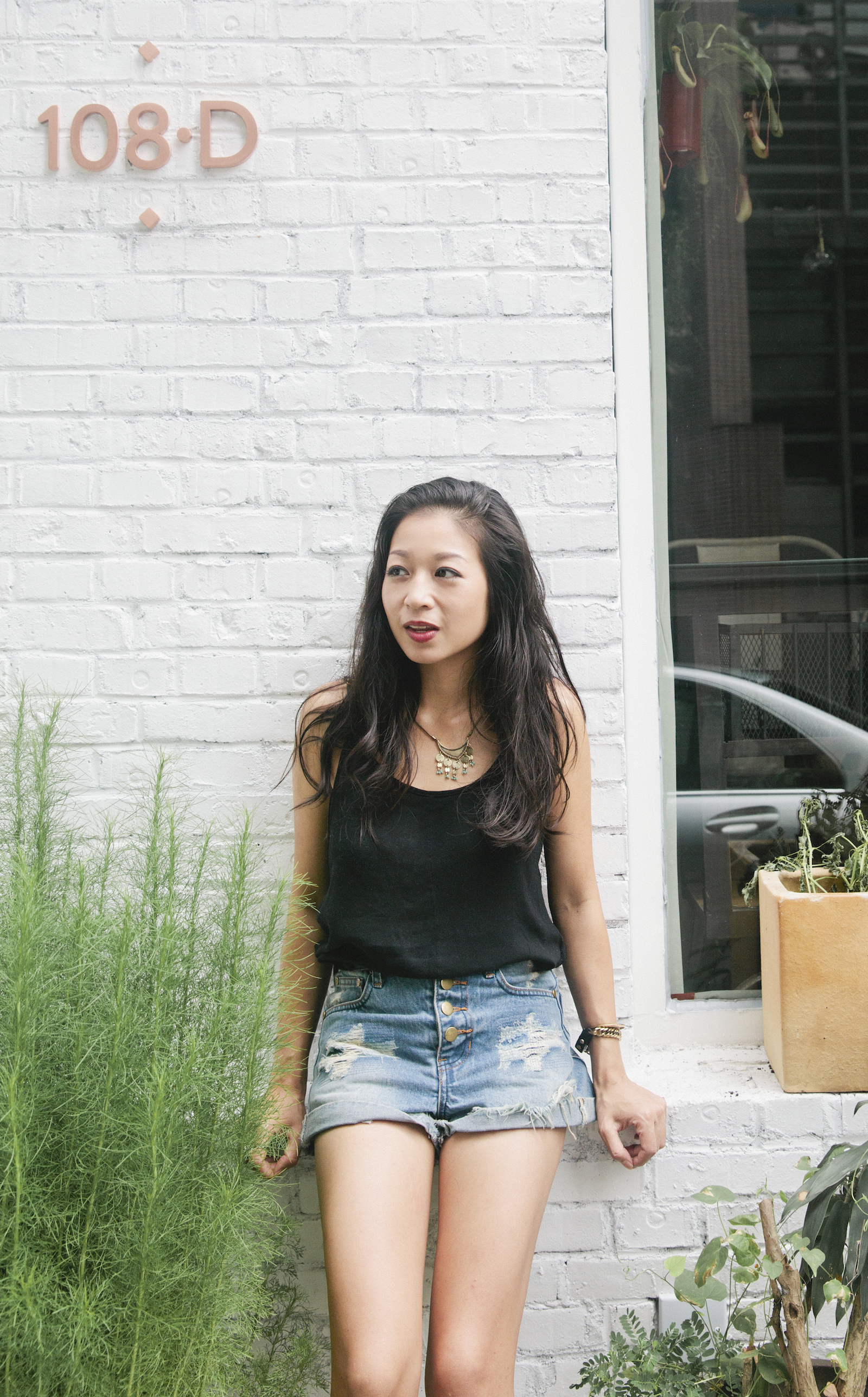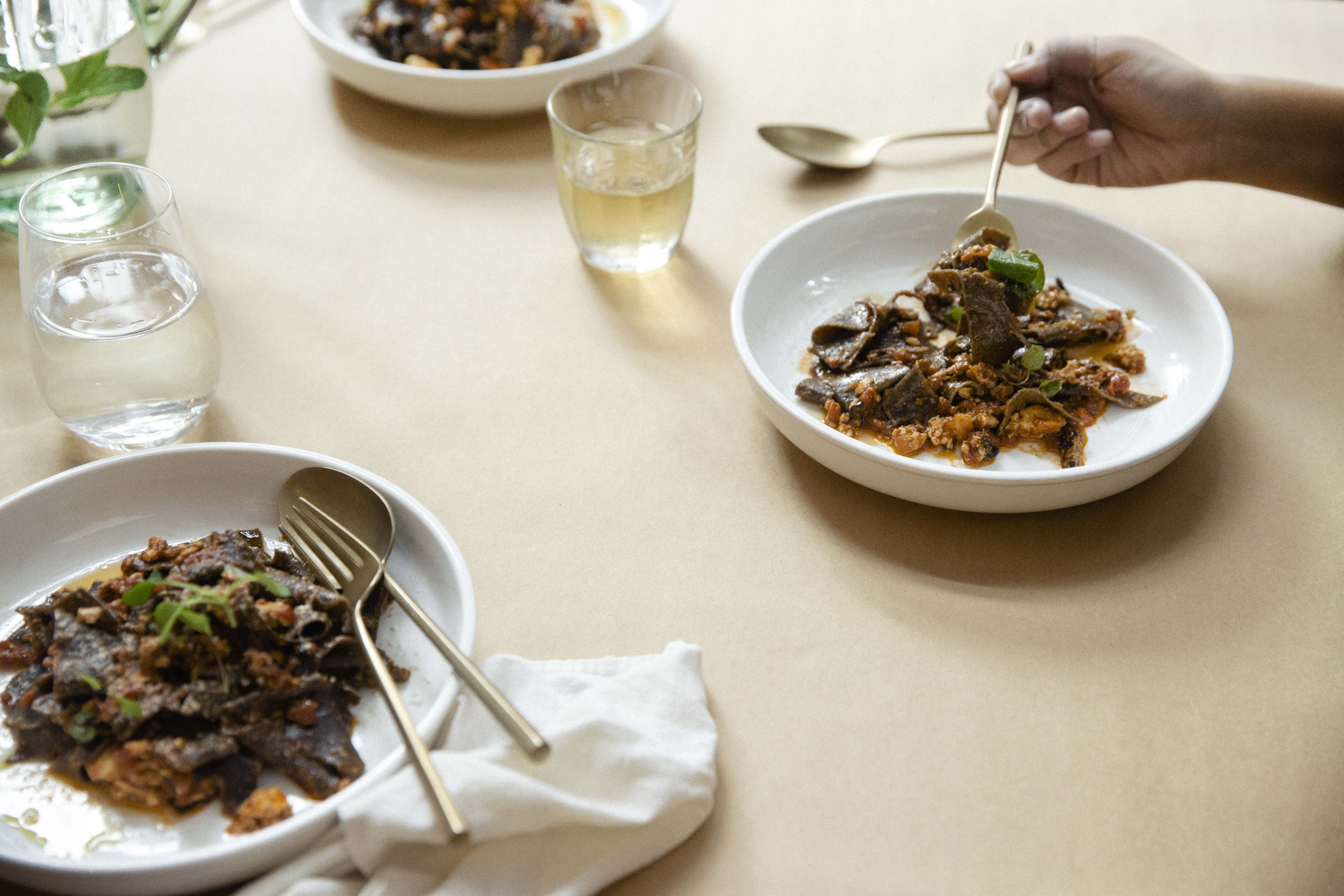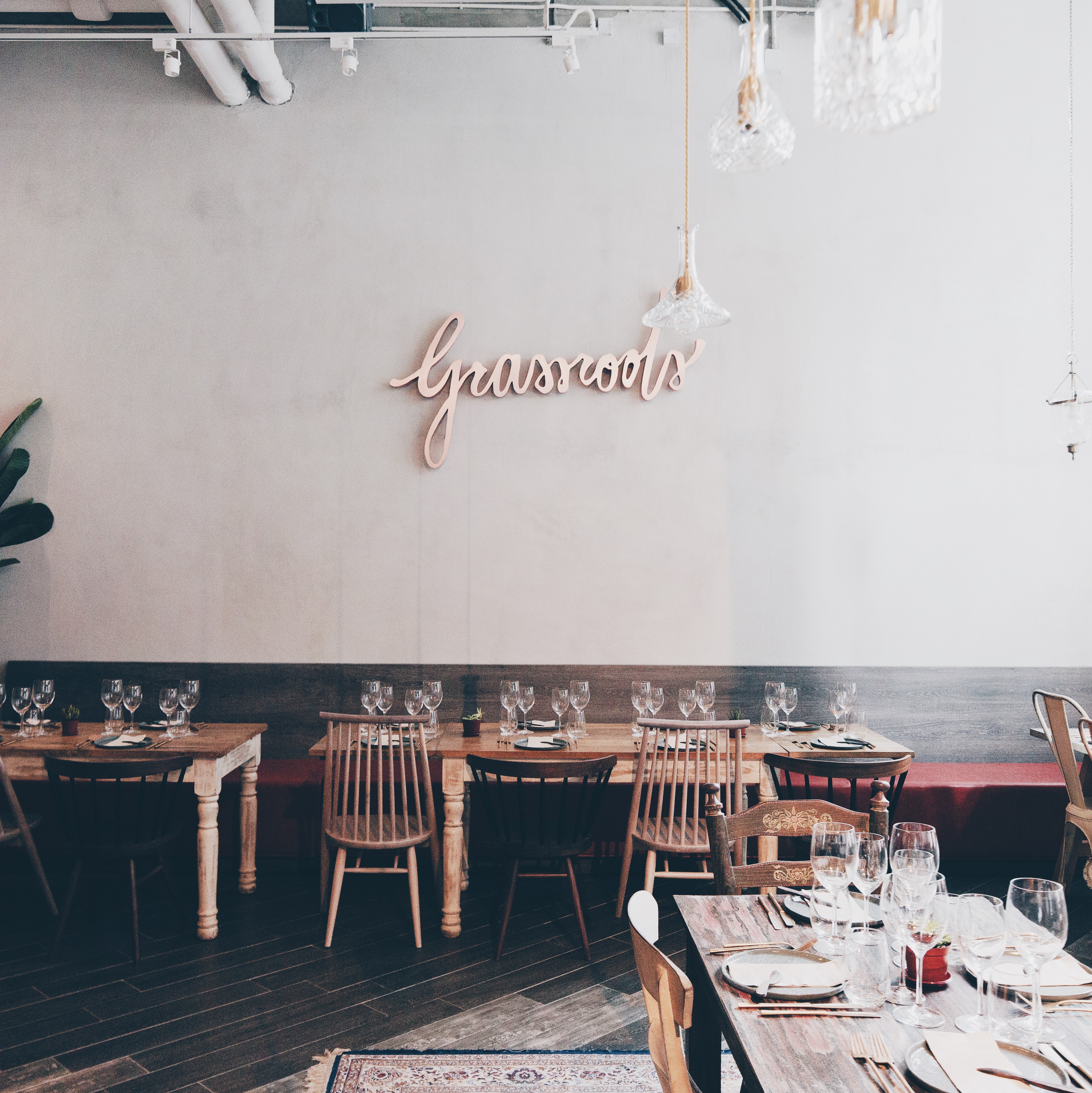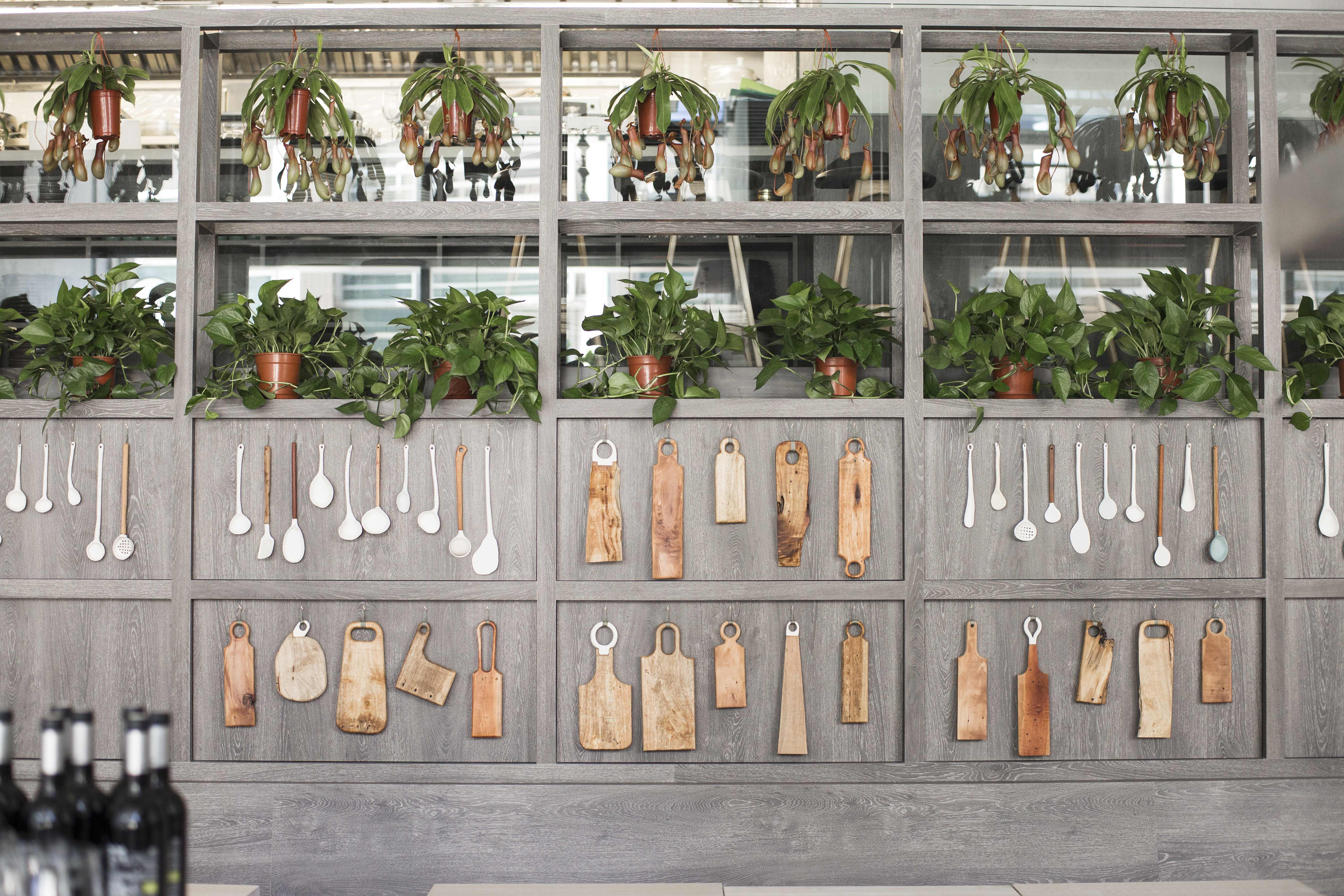Heart for Hustle: In this series, The Busy Woman Project interviews a couple of amazing, strong Women of Asia who, in pursuit of their passions, moved on to set up businesses on their own. Follow our series as these ladies share their views on gender-related challenges, what drives them & more!
In conversation with Peggy Chan, Founder of Grassroots Pantry ("GP") - one of our community's favorite organic & eco-conscious restaurants in Hong Kong. The philosophy of GP is that "Good food doesn’t have to be bad for you and everything around us." Peggy & team strives to "educate the community by setting a standard that promotes local, farm-to-table and sustainable food practices while serving each table a delectable meal".
Peggy shares with us ways to be more conscious about the environment, as well as to be aware of what you put into your bodies.

What are you Busy with?
My business consumes every minute of my life but it is also a choice I have made to be busy with the things that keeps me fulfilled, creative and always learning; is educational and grounded on an altruistic principle; and which benefits society.
Where I am required to be and how I divide my time highly depends on the staffing situation.
A typical day means that I get up around 6am and begin to prepare for work as soon as I wake. During the hour that I get ready, I am practicing insight meditation at the same time - centering my intentions for the day. This is also the time I get to prioritize my workload, and delegate what I need to get done to my management team, as well as the various outsourced teams (PR, Photographer, Graphic Designer) I work with.
I’m usually on an Uber by 7:15am and will get my day started in the kitchen by 8am. No matter how busy my day gets, I always make sure I get in a nourishing breakfast which on most days, could either be our roasted GP granola with coconut kefir yogurt, homemade almond milk and lots of fresh fruits and berries; or our scrambled tofu with cashew browned butter, multigrain toast and half a sliced avocado.
Between 9am-2pm, I’m in the kitchen making food preparations, testing new dishes, and running breakfast shift, creating catering and private dinner menus, juggling the roster, conducting new hire interviews, discussing food orders with my head chefs and suppliers, seeing what is available from the farms, receiving purchases, running through numbers and signing cheques. My emails are monitored at every chance that I have and then, as best as possible, responded to in the afternoon. I also handle a lot of our social media contents and that then gets discussed and the posting gets delegated to either an intern/our PR team on a timely schedule.
I will have all of my meetings and interviews/shoots with press scheduled between 2-5pm, and then grab a quick bite of any brown rice and cooked greens based dish as lunch/dinner before team briefing at 5:40pm.
On most nights, I will stay on, whether in the kitchen or on the floor, until 10-10:30pm, ensuring consistency in quality with our dishes and drinks, to provide the necessary training for the team, and to greet our guests. I end up home around 11/11:30pm with a take-away late supper from GP, something to keep me satiated before I head to bed at around 1am. If I’m scheduled prior, I will usually attend a panel, an event, or a business related dinner.
Do you use any mobile / web-based apps to support your day-today routines?
I am very traditional and not very tech savvy, but I do rely on Calendars on my mac to keep my schedules in place.
I do still write a lot of my thoughts and ideas on pieces of papers, but notes on my iPhone has been quite helpful.
I also do not have an alarm clock or a home phone so the iPhone is what I have to rely on.
As a female business owner and having worked in the kitchen, share with us some gender-related challenges you faced, and how did you overcome them?
Being taken seriously.
I do not have an outspoken, boastful, large or extroverted personality and can generally be viewed as timid. Especially when being confronted, I tend to listen first, than to raise my voice.
How I overcame that challenge was to work my way up slowly for the past 17 years in the industry so that I no longer have to confront those who judge me so quickly. I am content with my achievements and successes, of who I am and how I got here; and am grateful that I have earned the respect from my peers and colleagues not merely through speech, but through action.
What advice do you have for other ladies out there who are looking to develop themselves in this industry?
I no longer think these stereotypes (women being smaller, less strong, abiding to housewife tasks, sexism) are barriers to why women aren’t succeeding as quickly as men.
Call me traditional, but if you want to do something with 100% integrity, you have to make the necessary sacrifices to get you there. Being hard on myself has its vices but it’s also what makes me tougher and more resilient than most of my peers and competitors - be it men or women.
Sacrifices may equal to time spent in the industry and really living through the hardships - the hours, the heat, the physical pain, and the feeling that you are going nowhere, and not nearly fast enough. These obstacles are not encountered only by women, but men as well.
Sacrifices may also mean understanding that you will no longer have a social life, and that you may lose quite a number of friends who do not understand or support your purpose.
Developing love in yourself is crucial as this industry really does test your EQ. But being business savvy, having the creativity, the resilience & persistence, a rational mindset, the integrity, the experience, and the connections to run a food business is everything that you will need to keep your business afloat, and thriving.
What drives you? Where or what do you think shaped your entrepreneurial drive / gave you the confidence?
Running into problems. I’m a solutions-oriented person and handling problems, coming up with solutions, and empowering those around me to deal with problems and mistakes is what keeps me going.
My upbringing most likely shaped my drive. I experienced a wonderful but tough childhood where I was left to fend for myself since I was a baby. Those experiences made me more resilient as the better I handled my stress each time, the easier it became. And so the more I overcame, the harder I could push myself. My father is a true role model when it comes to persistence, resilience and having that entrepreneurial drive switched on, always. Although during those days in the 60’s, if he hadn’t persisted, he may have already been dead in communist China.
As for confidence, I built my confidence through time. To practice right thoughts, right speech and right actions, and then also have worked hard to have something to show for - all contributing to me being content with myself, which reflects in my work on a daily basis. Self-worth was only something I had learnt to embrace in my late 20s. We are students of the world and should always be learning, accepting and loving.
Accepting that we are not perfect, and that we all make mistakes, and having the humility to laugh at our mistakes, learn from it and move on, is what will help build your confidence through time.
Who or what continues to inspire you to grow & push boundaries?
Competition drives me to stay consistently innovative. Seeing people create incredible socially responsible initiatives and businesses also inspires me to do more with the platform that GP has grown over the past 5 years, as I plan on doing a lot more on the social aspect.
Going away, travelling and meeting new people from countries I have never been to gives me space to think and regroup my thoughts. I always come back as a better manager, a better boss, allowing me to clear my headspace to be able to make better, and more rational decisions.
What are some of the values you and/or your brand goes by?
I have been a practitioner of Theravada Buddhism for many years, although Tibetan and Zen Buddhism are often easier to understand for beginners through the works of H.H The Dalai Lama and the Swiss Psychologist, Carl G. Jung.
Understanding the Four Noble Truths (that there is suffering and every living being experiences it, there is a cause to our suffering, that there is a way to end the suffering and to understand that there is a purpose in the end), and practicing the Eightfold Path (to right understanding, right thought, right speech, right action, right livelihood, right effort, right mindfulness and right concentration) with every thing that we do.
Non-violence is obviously the core value for our brand. Compassion for others suffering from food related issues, and doing good in contributing and supporting the right businesses (organic, local, grassroots) are all principles we live by at GP.

Define ‘that moment’ when you decided to leave your ‘corporate life’ to build your own brand?
I never faced burn out working in kitchens as being a cook is innately who I am. It’s the perfect job for creative homely introverts like myself. You can keep quiet and stay concentrated while making food! What job is better than that?
Working in the front of house though where you’re constantly interacting with customers, with colleagues, and worrying how others are judging your every action and management style, questioning whether you’re good enough or why you weren’t getting that promotion, was what eventually burned me out while working at The Four Seasons HK.
The moment I decided to leave corporate life in late 2010, I thought I would be moving into the holistic and food sustainability academic field. I had even applied and been accepted into the Masters program at the University of Gastronomic Sciences. But fate took a turn and I was diving head first into the organic arena in HK by 2011, and then was handed the opportunity to create a business plan and after some pitching to my father, he became my first angel investor to create what would become the original GP.
What are some key facts you’d like to share on the underlying issues with the food system?
What is sold on supermarket shelves contain over 80% of GM corn derivatives. None of them are required to be labeled.
Farming is a dying industry should we continue to allow the agri-giants process all of our whole foods into junk. Buy direct from farmer’s markets and skip the middle men.
Wildlife is becoming extinct due to human consumption. We wipe off rainforests, kill orang-utans, elephants and rhino habitats so that we can grow one single crop to make potato chips with the palm oil that genetically modified potatoes are fried in.
We package everything with plastic and don’t think about where the plastic will end up. And most of it are now ending up as broken up pieces of indigestible materials in the ocean, eaten up by fishes, whales and other sea creatures. By 2050, there will be more plastic than fish in the ocean.
Cattle farming is the most inhumane, carbon intensive industry. Methane released by cows is what contributes to our ozone layer depleting, resulting in global warming. Milk pumped from cows injected with rBGH (a genetically engineered artificial hormone) is unnatural. Cows, as all mammals do, should only be giving off milk after giving birth. rBGH changes the hormones of cows to allow them to give off milk 365 days/year. Growth hormones ultimately harms and alters our genetic makeup as a human species when consumed.
What do you think is the biggest thing or trend in the Health & Wellness scene / green movement in HK that has changed over the past few years?
That vegan foods are considered a norm. And more and more, chefs are adopting this practice of offering more vegetarian/vegan options on their menus.
Are there some simple, little steps that one can take to adopt a conscious, eco-friendly / green eating lifestyle and to make a difference to support the environment around us?
Adopting a vegetarian diet is the first thing you can do to contribute to making a difference and to help reverse global warming.
As a restaurant, creating food at the level of quality we abide by will always be more expensive than if you were to prepare the meals at home. Restaurants are there for special occasions, or times when customers simply want convenience without jeopardizing on quality. We pay at least 60% more than what it costs to prepare a home cooked organic meal at home, hence the marked up prices when you dine out. Understanding this and supporting those who care to offer that experience in order to fulfil your need for convenience is so so crucial in order to keep grassroots businesses like ours alive.
Secondly, take the time to source from trustworthy suppliers. Make real, wholesome friendships with farmers, suppliers and food people. Because food people are in the end some of the most compassionate breed. Imagine it, we spend our lives to invest in a career for the sole purpose of feeding others! That alone, deserves loving kindness.
Thank the chefs, thank the farmers, thank the people who brought that food onto your tables. It goes a long way.
Are there any other Conscious Brands that you are aware of which are for the Environment, for Women Empowerment (i.e. Women-owned/led and supports Women Empowerment), etc? Simply hashtag #TBWPXConscious on any of your social media posts or drop us a note at: [email protected].



